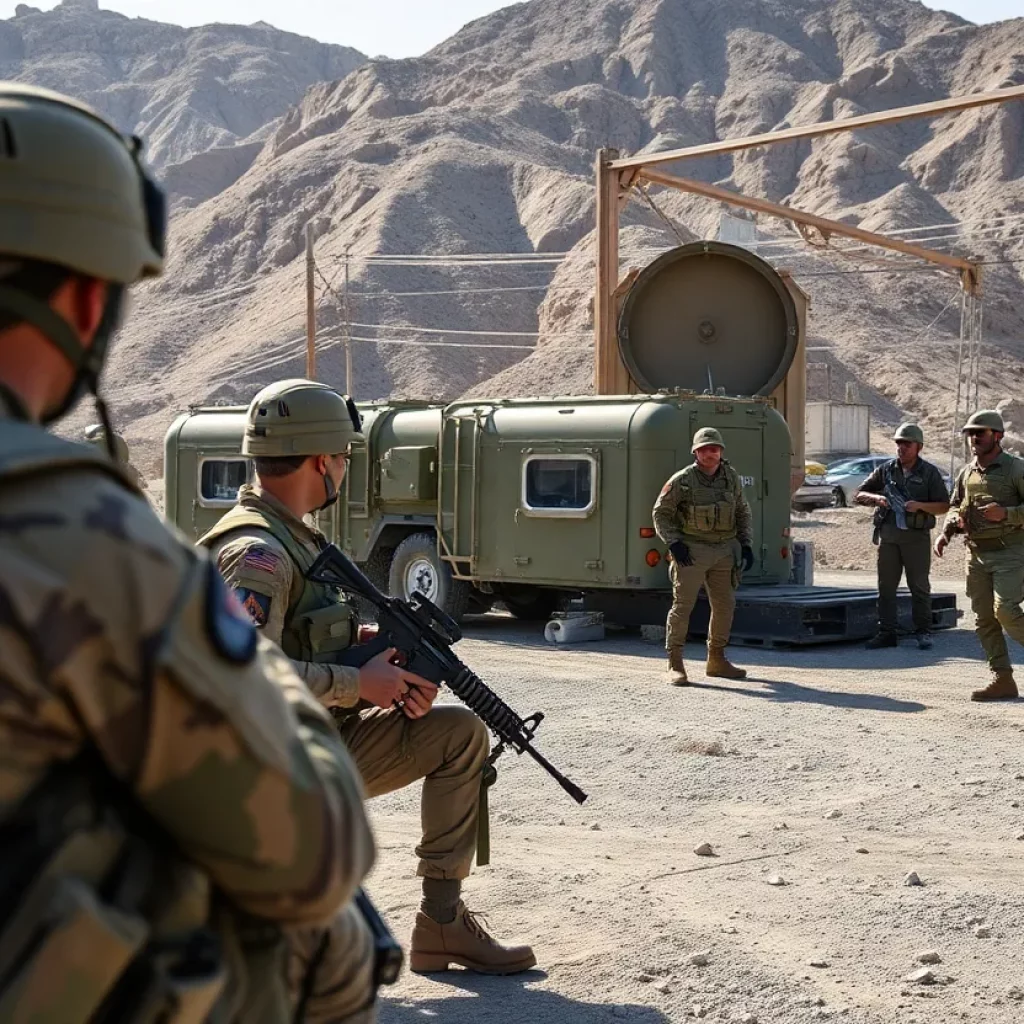News Summary
The Supreme Court is set to examine the case of Hencely v. Fluor Corporation, revolving around the injuries sustained by U.S. Army Specialist Winston Hencely during a 2016 attack in Afghanistan. This case may redefine contractor liabilities and accountability in combat zones, addressing important concerns about corporate negligence towards military personnel. The outcome could have significant ramifications for future litigation involving defense contractors.
Supreme Court To Review Case Involving U.S. Soldier Injured in Afghanistan Attack
In a significant development set to unfold next term, the Supreme Court has agreed to examine the complex case of Hencely v. Fluor Corporation, a lawsuit that has important implications for both military personnel and government contractors. Representing U.S. Army Specialist Winston Hencely, the law firm Bowen Painter Injury Lawyers is poised for a legal battle that could redefine contractor liabilities in combat zones.
The Context of the Case
The case stems from a tragic incident that occurred on November 12, 2016, at Bagram Airfield in Afghanistan during a Veterans Day 5k event. An Afghan national carried out a suicide bombing that resulted in a devastating loss of life, claiming six victims and injuring 17 others. Among the injured was Specialist Hencely, who sustained serious neurological injuries due to the attack.
The bomber had been employed by a subcontractor of Fluor Corporation, a prominent U.S. defense contractor. Disturbingly, the bomber fashioned the explosive device using tools and materials sourced from Fluor’s job site. Reports indicate that the subcontractor breached its supervisory duties by leaving the bomber unsupervised, thereby violating established obligations to the Department of Defense.
Legal Proceedings
Following the bombing, Specialist Hencely took legal action by filing a lawsuit in federal court located in South Carolina. His claims are centered on the allegation of negligence by Fluor Corporation in failing to adequately oversee its subcontractor. However, the district court rejected the case, invoking the Federal Tort Claims Act’s “combatant-activities exception.” This ruling was subsequently supported by the U.S. Court of Appeals for the Fourth Circuit.
In February 2025, Hencely escalated the matter by petitioning the U.S. Supreme Court for a review of these lower court decisions. His petition argues that the application of the combatant-activities exception to preclude state-law claims against government contractors contradicts the explicit text of the FTCA. Furthermore, the case brings to attention a growing divide among federal circuit courts regarding the interpretation of this exception.
The Implications of the Supreme Court’s Review
The Supreme Court historically receives around 7,000 petitions for certiorari annually but only grants review in about 1% of cases. The Court’s decision to take up this case highlights its critical importance and the potential ramifications it holds for injured service members seeking justice against corporate negligence.
Oral arguments are anticipated during the Court’s next term, where legal experts expect discussions to focus on the fundamental questions of contractor immunity and accountability in combat zones. A ruling in favor of Hencely could not only clarify existing ambiguities in contractor liabilities but may also set a legal precedent that influences future litigation involving defense contractors operating in conflict areas.
The Bigger Picture
Representatives from Bowen Painter Injury Lawyers have articulated that this case serves as a pivotal moment in ensuring that corporations handling military contracts adhere strictly to both the contractual obligations and the law. The firm emphasizes the critical necessity for contractors to maintain appropriate oversight, thereby preventing tragic incidents that endanger the lives of service members.
As the legal community turns its eyes toward the Supreme Court, the outcome of Hencely v. Fluor Corporation could resonate far beyond this single case, shaping the landscape of contractor accountability in military operations for years to come. The ongoing fight for justice not only affects Specialist Hencely and his fellow veterans but may become a touchstone for similar cases in the future.
Deeper Dive: News & Info About This Topic
HERE Resources
Additional Resources
Author: STAFF HERE CHARLESTON
The CHARLESTON STAFF WRITER represents the experienced team at HEREcharleston.com, your go-to source for actionable local news and information in Charleston, Charleston County, and beyond. Specializing in "news you can use," we cover essential topics like product reviews for personal and business needs, local business directories, politics, real estate trends, neighborhood insights, and state news affecting the area—with deep expertise drawn from years of dedicated reporting and strong community input, including local press releases and business updates. We deliver top reporting on high-value events such as the Spoleto Festival USA, Charleston Wine + Food Festival, and the MOJA Festival. Our coverage extends to key organizations like the Charleston Metro Chamber of Commerce and the Charleston Museum, plus leading businesses in tourism and maritime industries that power the local economy such as South Carolina Ports Authority and the Charleston Visitor Center. As part of the broader HERE network, including HEREaiken.com, HEREbeaufort.com, HEREchapin.com, HEREcharleston.com, HEREclinton.com, HEREcolumbia.com, HEREgeorgetown.com, HEREgreenwood.com, HEREgreenville.com, HEREhiltonhead.com, HEREirmo.com, HEREmyrtlebeach.com, HEREnewberry.com, HERErockhill.com, HEREspartanburg.com, HEREaustin.com, HEREcollegestation.com, HEREdallas.com, HEREhouston.com, and HEREsanantonio.com, we provide comprehensive, credible insights into South Carolina's dynamic landscape.










